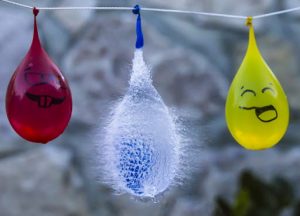Literally dying of thirst? Drink a Corona!
Now I know that’s tempting, but unfortunately science says it’ll dehydrate you further. This peculiar trade off is relevant in places like North Mexico and East Africa where it is common for people to wake up one morning and find that there isn’t fresh water to drink.
Ahogado el niño, tapando el pozo.
That’s a Mexican saying which literally translates into “trying to close the well after the child has already drowned” – trying to prevent something which in reality is “too little too late.” In Mexicali and Zaragoza, even the wells are drying up.
Through the magic of the NAFTA agreement, Constellation brands i.e. the third largest beer manufacturer in the United States (owns Corona, Modelo Especial, and Negra Modelo brands) can set up production plants in Mexico at low costs, and export beer across the border without paying tariffs. In 2015, they decided to expand their plants by spending over $2 billion in Zaragoza, Coahuila. In 2016, they focused on setting up a multi million dollar plant in Mexicali.
The problem is that Constellation Brands is exploiting water from the wells of these cities by drilling up to 500 metres deep into the ground. Needless to say, the dry Mexican climate only adds to the misery. In the case of Mexicali, its prime source of water supply comes from the Colorado river. However, being one of the most exploited rivers in North America, only 7% of the river’s flow reaches Mexico. Scientists estimate that the river’s flow will decrease by 5-20% within the next 40 years due to climate change.
Let’s do some basic math then. It takes a little over 3 litres of water to produce 1 liter of beer. In arid places that walk on fine margins, this is a big deal. According to estimates, Constellation Brands could own up to 75% of Mexicali’s water supply. And it isn’t even a case where a company privatizes water with the objective of providing water. Natural water is being dug up in order to make beer – resulting in higher profits for the company on one hand, and locals without water on the other. This caused a massive uproar among people in Mexicali that has largely been ignored by the government. The Mexicali Resiste started a Boycott Modelo campaign that resulted in confrontations between protesters and the police. The bigger picture remains unchanged.
Frustrations can be seen at a political level as well. In an interview with the Guardian, Mayor Leoncio Martínez Sánchez of the municipality of Zaragoza said that “there’s barely a drop of water when you open the tap”

Echoes
This dynamic is paralleled in other parts of the world. For instance, Nile Breweries , based around the source of the Nile river, is owned by the world’s second largest beer producer SABMiller. Similarly in Kenya, East African Breweries (EABL) is located on the banks of Ruaraka river. Surprise, surprise- EABL is owned by Diageo, the world’s biggest liquor producer.
Thus, we notice a trend. The existence of these breweries negatively impacts the water security of countries with a dry climate and a lack of structure that ensures access to safe drinking water. Lobbying efforts of major corporations have added fuel to the fire. For instance, companies in favour of privatization of water such as Nestlé and AB InBev (the world’s largest beer producer) have been partners of the World Water Week in the past. This conflict of interest is quite demoralizing as the voices of common people that are most affected by these activities are never heard.
What can we do about this? The short answer is spread awareness. Granted, alcohol is a strong enough motivator to look away, but stories of those affected need to be echoed worldwide in order to facilitate change.

What’s the way out?
It’s clear that this world can’t live without beer. Perhaps it could be possible to come up with smarter solutions instead. Perhaps the solution is not only the responsibility of the people, but also that of corporations.
In Sweden, the brewery Nya Carnegiebryggeriet, Carlsberg, and the Swedish Environmental (IVL) just launched a new pilsner called PU:REST that is brewed with recycled wastewater. It may not be the sexiest idea, but it is certainly one of the future. While this concept is still new and available only in Sweden, it serves as a stellar example of corporate social responsibility and other breweries should follow suit.
Let’s not sacrifice the basic needs of others for a cold pint.
by Nikhil Gupta
Photo Credits:
The moment a water balloon bursts with two funny water balloons, Public Domain Photography, CC BY-SA 2.0
Its my birthday! Party Woo, Sam Ilic, CC BC-NC 2-0
Child sit on cracked earth, ittipon










